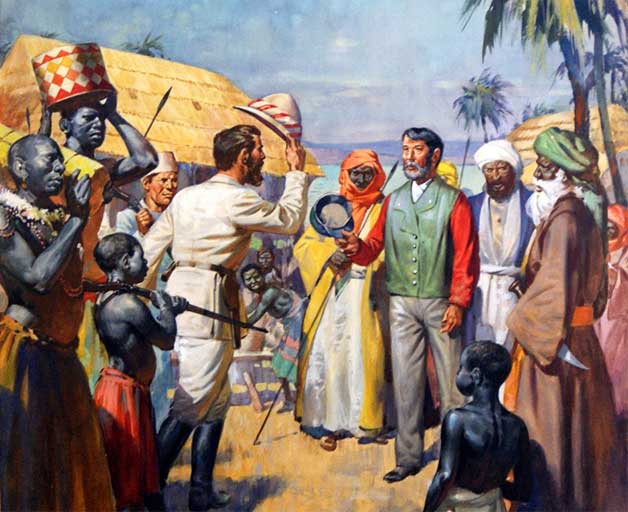
“Dr. Livingstone, I Presume” and Dissertations
On July 9th, 1867, E.D. Young set out to find Dr. David Livingstone who had disappeared about two years earlier on an expedition of his own to find the source of the Nile River. The search successfully concluded nearly four years later with the famous salutation, “Dr. Livingstone, I presume?”
Those familiar with history would quickly point out that this phrase is attributed to Henry Morton Stanley, not E.D. Young. And, that is an important lesson for dissertation students…
When E.D. Young set out to retrieve Dr. Livingstone from Africa, he had virtually nothing to go on. He knew where Livingstone’s expedition had begun, a bit of what had happened since, and little else. He certainly didn’t know where Livingstone was or how to get there.
This is exactly the situation most dissertation students find (or put) themselves in with regard to their studies. They begin with a vague notion of a dissertation topic and follow it wherever it leads. And, unfortunately, just like a bloodhound on the scent of a boy lost in the woods never knows where the trail will lead and whether or when he will find his quarry, the student doesn’t know whether or when he will successfully complete his study.
About half of them never do. Just like Mr. Young ultimately failed and was succeeded by Mr. Stanley.
So, how does one slant the odds in their favor? By changing their assumptions.
Seneca said, “If one does not know to which port one is sailing, no wind is favorable.” Instead of choosing a topic and following the scent like a bloodhound, focus on the destination and work backwards from there. Dr. Steven Covey, who wrote “The 7 Habits of Highly Effective People,” called this strategy beginning with the end in mind.
On what “end” should you focus? Well, in working with hundreds of doctoral students, I have found that once a student has collected and analyzed their data, they are virtually guaranteed of graduating some few months later. In addition to the collection and analysis of your data being the final true obstacle to graduation, the notion of carefully planning out this process is also incredibly instructive.
Once you know exactly what type of data you will collect, how, and from whom, a certain clarity about the whole dissertation takes hold. It’s kind of like punching a location into a GPS device and getting turn-by-turn directions to get there.
